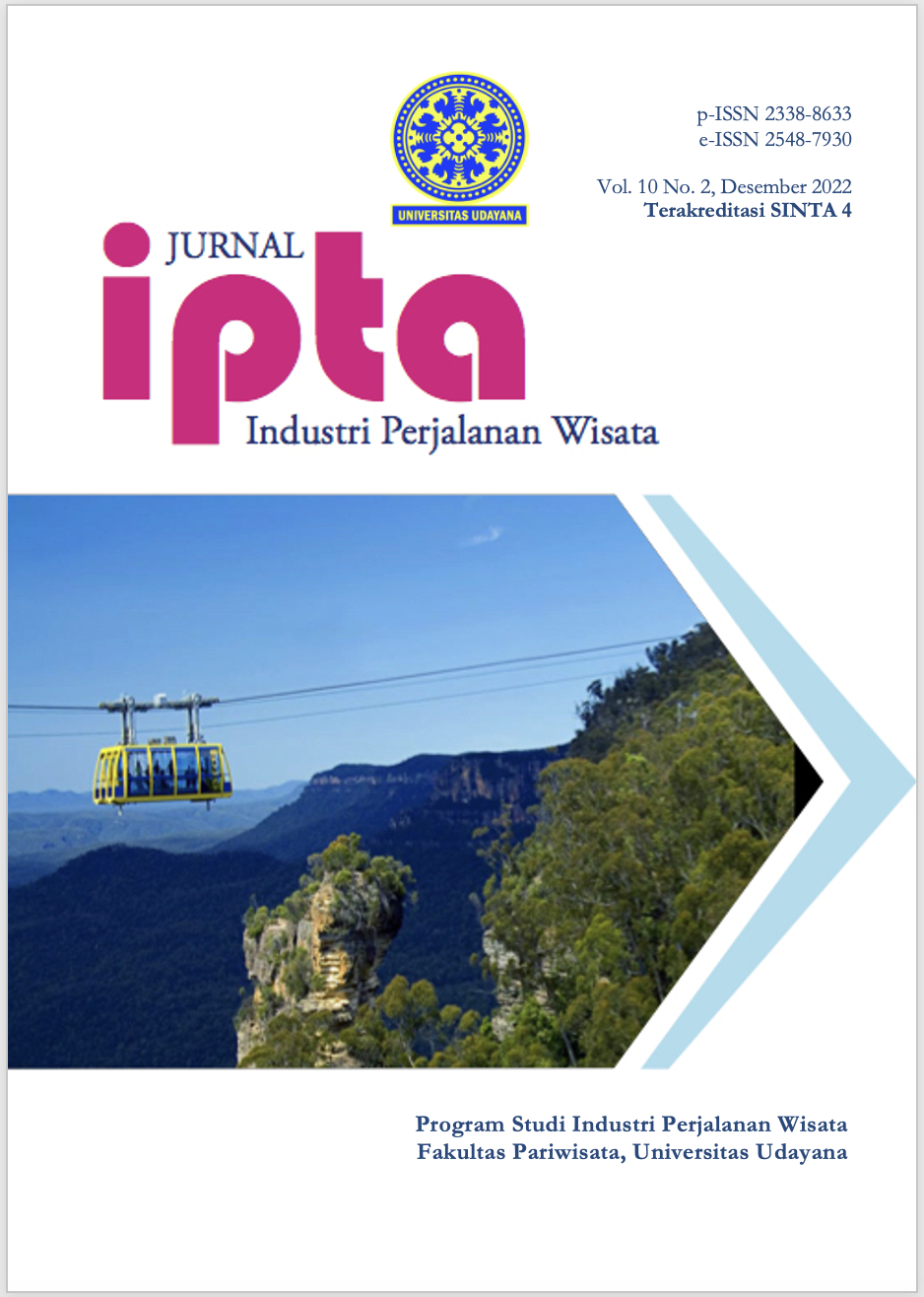SUCCESSION PLANNING IN MAINTAINING THE EXISTENCE OF FAMILY ENTREPRENEURSHIP HOTEL BUSINESS IN BALI
Abstract
In Bali, there are many family companies in the hotel business that failed in the second generation to lead the company and also many of which were successful, and even became big after being managed by the second generation due to success in the succession process, for example the I Gede Wirata and Kadek Wiranatha families who own 6 Bounty Group hotels, Putu Gde John Sastrawan with 4 Ramayana hotels, the late Ida Bagus Tjendana Putra with 4 Santrian hotels, based on this phenomenon, it appears that generational transfer (succession) of leadership in family companies is an important factor in the company's sustainability. Leadership succession in family companies does not always end in failure and brings company decline, it is evident that there are still companies that can survive for generations. Therefore, researchers are interested in researching and argue that it is necessary for family companies to prepare and plan for leadership succession as well and as early as possible to avoid failure in the intended leadership transformation. Seven things related to family companies are related to succession, namely: (1) unprofessional family companies; (2) there is no separation between company finances and personal finances; (3) family companies are considered unable to implement sound systems and procedures; (4) family companies only provide opportunities for family relatives to occupy key positions; (5) performance is not important, but more important is the ability to build a close relationship with the owner; (6) family companies will end up in the hands of the second generation, and (7) family companies do not view HR as an important company asset.
Downloads
References
Armstrong, M. (2009). Armstrong’s Handbook of Human Resource Management Practice: 11th ed. Kogan Page, London.
Amstrong, M. (1998). Manajemen Sumber Daya Manusia. Elex Media Kompotindo, Jakarta.
Brockhaus, R. H. (2004). Family Business Succession: Suggestions for Future Research. Family Business Review (17): pp. 165–17.
Hollinger, David A. 2006. From Identity to Solidarity. Daedalus, Vol. 135, No. 4, On Identity (Fall, 2006).
Susanto, A.B dan F.X Sujanto. (2008). Corporate Culture and Organization Culture, The Jakarta Consulting Group, Jakarta.
Susanto, A.B., Susanto, P., Wijanarko, H., dan Mertosono, S. (2007). The Jakarta Consulting Group on Family Business. The Jakarta Consulting Group, Jakarta.





